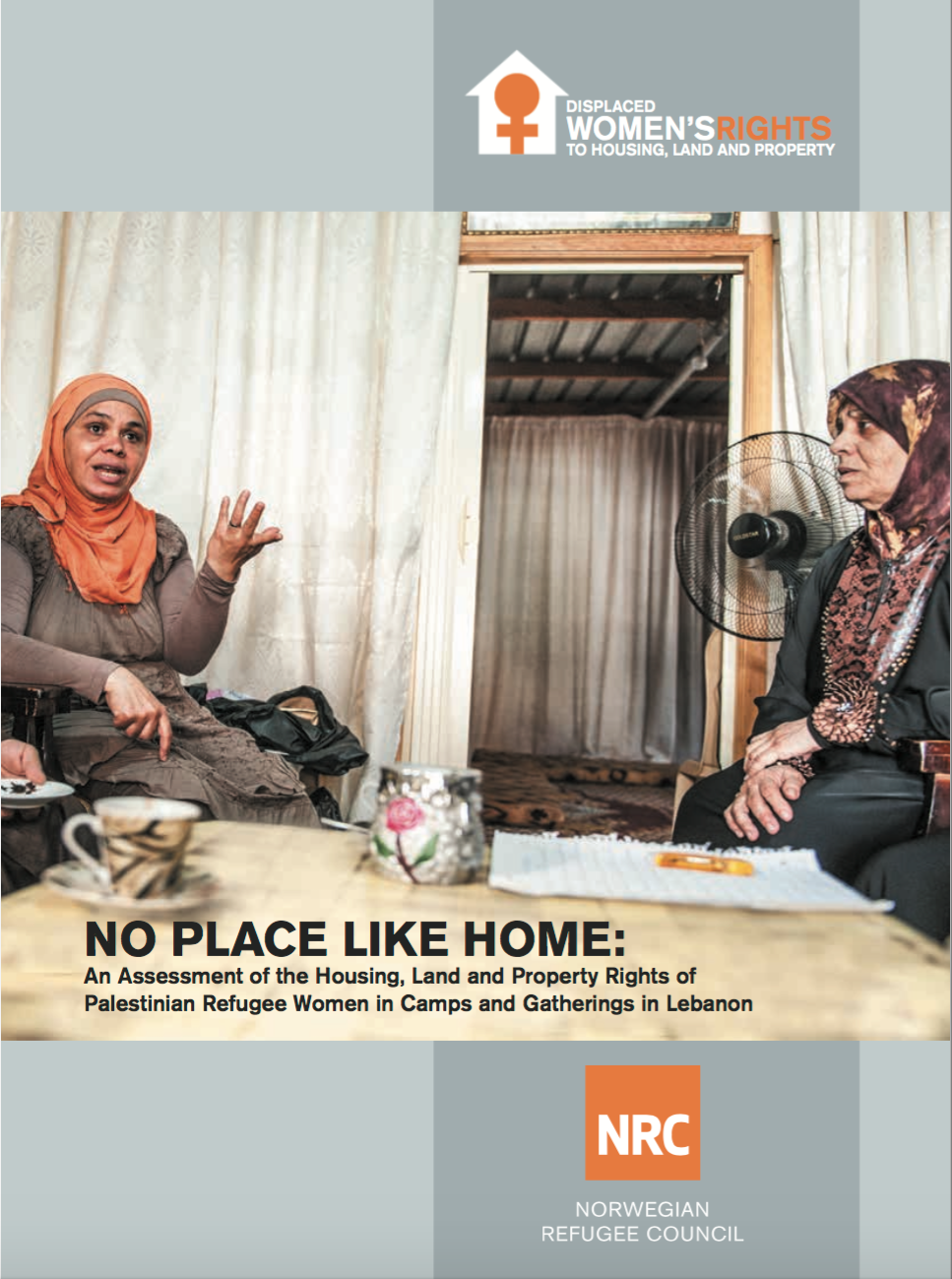Resource information
Palestinian women living in refugee camps and gatherings in Lebanon have little opportunity to realise their HLP rights. They face the double discrimination, challenged by both formal Lebanese law and familial Palestinian social systems.
In 2001, the Lebanese Government passed a law forbidding people who do not hold citizenship to a recognised state from getting property rights in the country. This has left many Palestinian refugees either losing property that they owned, or unable to inherit property from family members.
This is further complicated as many Palestinians wish to return home to Palestine. They do not want to compromise their right to return through owning property or being seen as permanent residents of Lebanon.
To improve the quality of a house in a refugee camp or gathering, residents need to obtain a permit from Lebanese authorities. Depending on where the camps are located, this can be extremely difficult and even impossible to do. Palestinian refugees are faced with the choice of having to pay bribes and buy building materials at inflated prices or rely entirely on humanitarian organisations to build or maintain a home.
Alongside these difficulties faced by all Palestinians, women face a double discrimination due to patriarchal practices within their community. Women’s HLP rights are not widely recognised as being in need of specific protection within Palestinian culture. The home is seen as belonging collectively to the family and a woman’s claim to a home is dependent upon her marital status and whether or not she has children.
Divorced women and women seeking inheritance from deceased parents face the greatest challenges in gaining HLP rights. Elderly widows and unmarried daughters appear the most able to secure them. All women, however, are linked to home ownership through a husband or male family member and all are dependant on these relationships for household security.
It is uncommon for women to seek legal help to claim their HLP rights in Lebanon. In the formal context, they fear that it will in fact lead to further insecurity, whilst in the familial context, women are often resigned to the social and cultural discrimination that continuously works against them.


